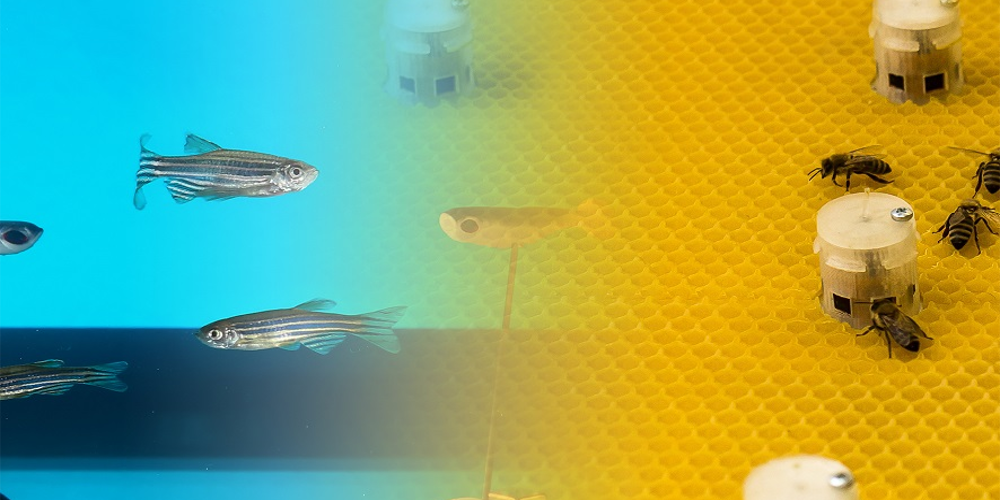
Thomas Schmickl
Thomas Schmickl, project coordinator of ASSISIbf, is professor at the Department of Zoology at the University of Graz, Austria, where he founded the Artificial Life Lab in 2007. Besides his research activities in the fields of zoology, biological/ecological modeling and bio-inspired robotics (swarm robotics, modular robotics, neural networks, artificial hormone systems, evolutionary robotics), he also teaches at the Department of Environmental System Sciences at the University of Graz.
ASSISIbf
ASSISIbf Animal and Robot Societies Self-Organize and Integrate by Social Interaction (bees and fish)
The goal of the ASSISIbf project is to establish a robotic society that can develop communication channels between animal societies (honeybees and shoals of fish).
Our robots will self-program by evolutionary algorithms until they have learned to interact with animals in the desired way. This new technology aims to lay new foundations on the way in which humans can interact with animal societies in order to manage the Environment.
The researchers expect their work to have an impact on agriculture, livestock management and environmental protection (monitoring). At the festival, researchers will establish an interspecies connection between bees and fish. With the aid of two different types of robot designed specifically for each species, and a virtual world representing all the agents of the translation system, bees and fish will solve a task together, live.
Project credits:
EU-FP7 Project no. 601074. Objective ICT-2011.9.10: Fundamentals of Collective Adaptive Systems—FoCAS; Duration: five years; start: February 1, 2013; Budget: €6m
Consortium: University of Graz—Artificial Life Lab (Project coordination); Université Paris Diderot—LIED; École Polytechnique Fédérale de Lausanne—LSRO; University of Zagreb—LARICS; Fundação da Faculdade de Ciências da Universidade de Lisboa -BioISI; Cybertronica Research

